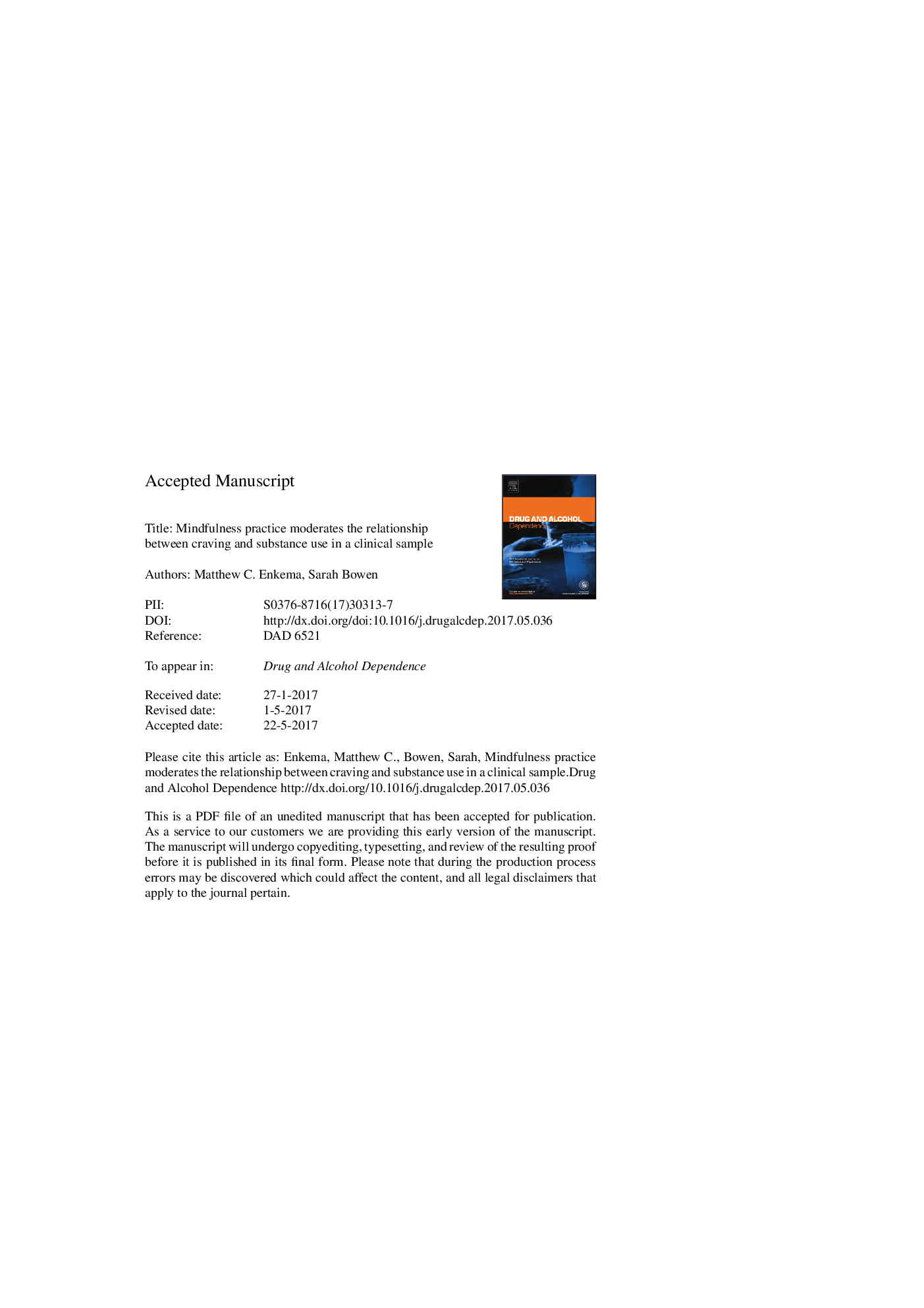ترجمه فارسی عنوان مقاله
تمرین ذهنیت رابطه بین اشتیاق و مصرف مواد در یک نمونه بالینی را کاهش می دهد
عنوان انگلیسی
Mindfulness practice moderates the relationship between craving and substance use in a clinical sample
| کد مقاله | سال انتشار | تعداد صفحات مقاله انگلیسی |
|---|---|---|
| 119785 | 2017 | 31 صفحه PDF |
منبع

Publisher : Elsevier - Science Direct (الزویر - ساینس دایرکت)
Journal : Drug and Alcohol Dependence, Volume 179, 1 October 2017, Pages 1-7

